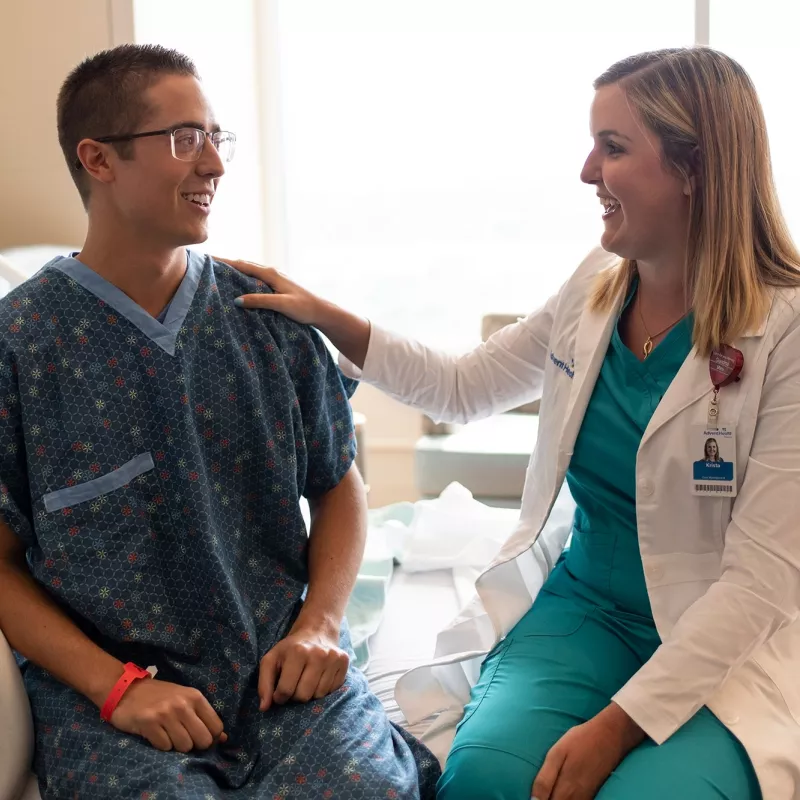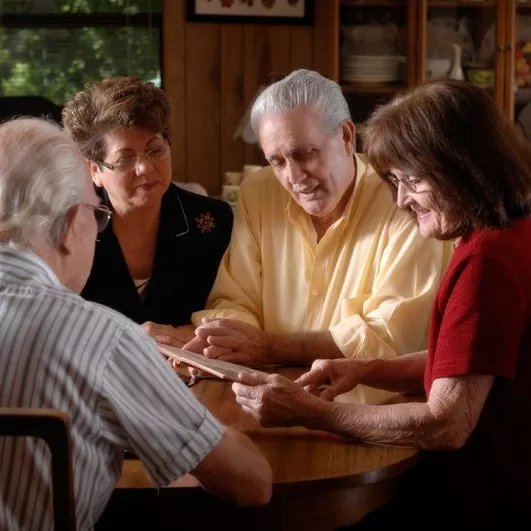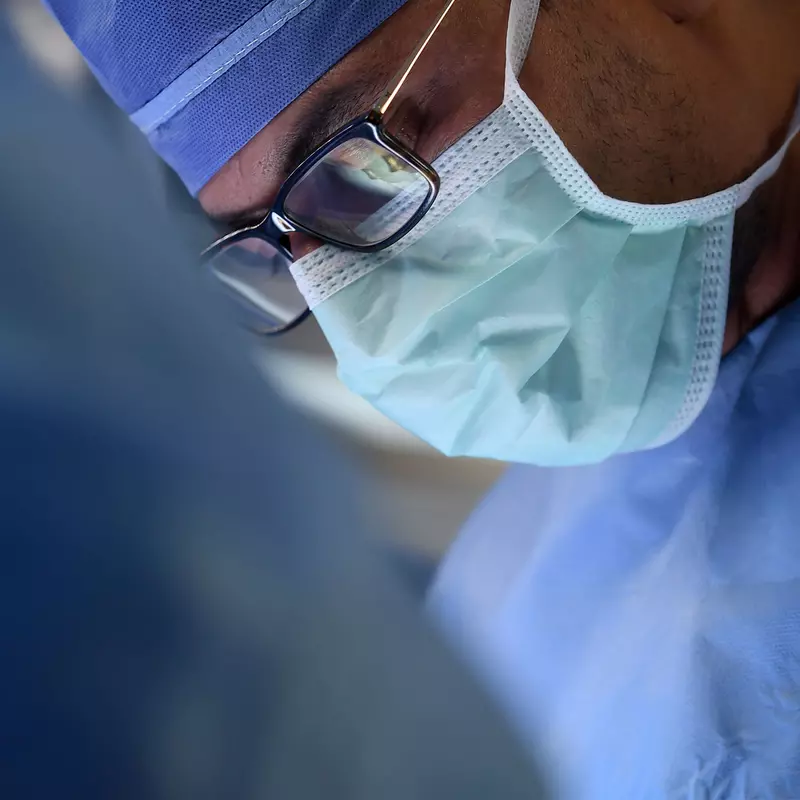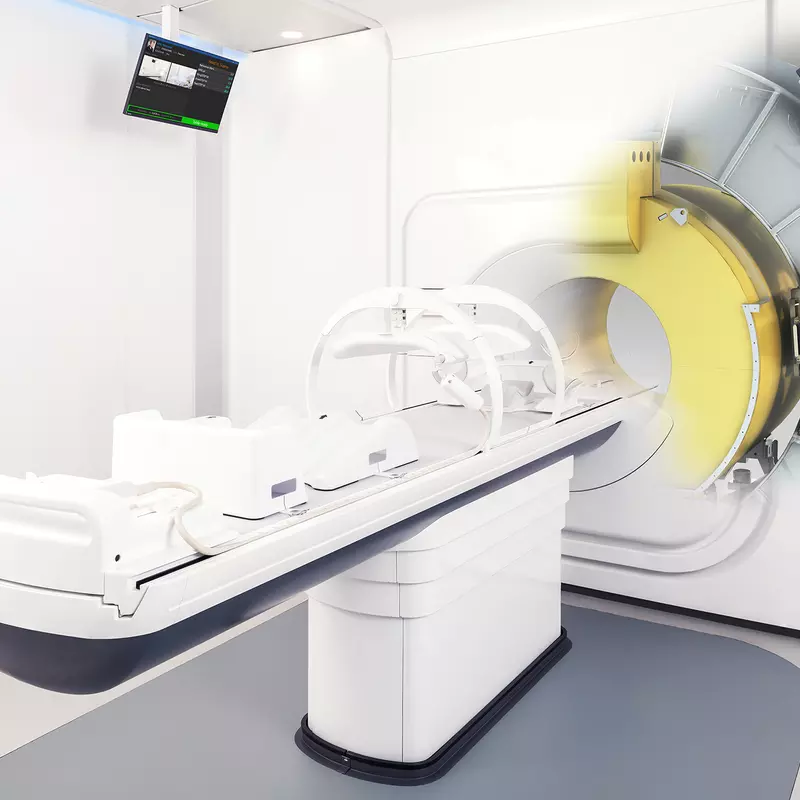
Support You Deserve During Lung Cancer Treatment

AdventHealth Cancer Institute Shawnee Mission wants you to have every available option for cancer treatment, so we provide state-of-the-art care and precision medicine for a variety of conditions.

When it comes to lung cancer, you’re not alone. We’re with you every step of the way with practical ways to ease the stress of a cancer diagnosis. Let us help you on your road to healing.

Our lung cancer program was designed to help you overcome cancer with the support you deserve. We’re here for you with a variety of procedures to help you feel whole again.
Lung Cancer Prognosis and Treatment What You Need to Know
Non-small cell lung cancer (NSCLC) and small cell lung cancer (SCLC) are the two main types of lung cancer. The NSCLC cancer makes up 90% of lung cancers and includes adenocarcinoma, squamous cell carcinoma and large cell carcinoma.
Additionally, mesothelioma is an aggressive cancer caused by exposure to asbestos fibers and affects the lining of the lungs and abdomen. Lung cancer is one of the most preventable, though most deadly, cancers in men and women around the world.
- Preventing Lung Cancer
-
To lower your chances of lung cancer:
- Don’t smoke
- Use proper ventilation of radon gas
- Wear protective equipment when working with asbestos
A lung cancer screening is a great first step toward preventing lung cancer. Ask your primary care provider about lung cancer screening if you:
- Are a current smoker, or quit within the last 15 years
- Are between the ages of 50 and 80
- Have at least a 20-year pack-year history (if you smoked one pack of cigarettes a day for the past 20 years)
- Show no current signs/symptoms of lung cancer
Medicare requires the same criteria, however, will only provide coverage for ages 50-77.
Our lung navigator is here to help you schedule a lung cancer screening and can be reached at 913-632-9109.
- Causes and Risk Factors for Lung Cancer
-
Some causes of lung cancer are:
- Asbestos fibers (mesothelioma)
- Genetics
- Outdoor air pollution
- Radon gas
- Smoking, or inhalation of secondhand smoke
- Signs and Symptoms of Lung Cancer
-
Early signs of lung cancer of any type can include:
- A change in color or volume of sputum (saliva and mucus)
- Changes in the voice
- Coughing, especially if it persists or increases in intensity
- Coughing up blood
- Hoarseness
- Loss of appetite
- Onset of wheezing
- Pain in the chest, shoulder or back, unrelated to coughing
- Shortness of breath
- Unexplained weight loss
If the lung cancer has spread, a person may feel symptoms in other parts of the body, such as the lymph nodes, brain, liver, bones and adrenal glands.
- Talking to Your Doctor
-
Your doctor may refer you to a pulmonologist, thoracic surgeon or oncologist for lung cancer treatment. Physician assistants (PAs), nurse practitioners (NPs), nurses, nutrition specialists, social workers and other health and hospital professionals may be a part of your treatment plan.
Some questions you might ask a health professional include:
- Have the cancer cells been checked for gene changes that could affect my treatment options?
- What are the symptoms of mesothelioma lung cancer?
- What is the stage of my cancer, and what does that mean?
- What kind of lung cancer do I have?
- Where exactly is the cancer? Has it spread beyond where it started?
- Will I need any other tests before we can decide on treatment (if I am diagnosed with cancer)?
- Diagnosing Lung Cancer
-
Screenings are recommended if you don’t have lung cancer symptoms but are at high risk of developing the disease because of smoking history or age. Types of screenings include:
Low-Dose Computed Tomography (CT)
This scan is also called a low-dose CT scan, or LDCT. A CT machine scans the body and uses low doses of radiation to view the lungs. Studies have shown that only LDCT scans lower the risk of death from lung cancer by identifying it earlier.Sputum Cytology
In sputum cytology, a sample of phlegm is examined under a microscope for the presence of cancer cells. - Treatment Options for Lung Cancer
-
Regardless of your lung cancer stage, you can rest assured that your cancer care team will identify and explain the stages of cancer to you and explore your treatment options to find the best fit.
Some NSCLC lung cancer treatment options can include:
- Chemotherapy
- Immunotherapy
- Radiation
- Surgery
- Targeted treatments
For people who have small cell lung cancer, treatment options may include:
- Chemotherapy
- Radiation therapy
- Surgery
Lung Cancer Care Here to Help You Each Step of the Way
Our lung cancer treatment empowers you to overcome cancer so that you can feel whole again. We’re here for you every step of the way.
Cancer Rehabilitation
We offer one-on-one treatment with a licensed physical therapist specializing in oncology rehabilitation.
Care Navigator
You’ll have help during every step of treatment with a caring partner to guide you.
Survivorship
You can overcome cancer. We want to give you hope as well as healing throughout your journey.

Your Kansas City Lung Cancer Care Team
You’ve got this, because you’ve got us. Get the expert care and support you need to face lung cancer and reclaim your life. Contact our cancer institute today at Call913-632-9100. You can also click the button below to find a physician near you.

New Cancer Treatment Technology To Help You Heal
AdventHealth Cancer Institute Shawnee Mission offers the latest cancer-fighting technology, the Elekta Unity MR-Linac system. We're the first and only health care center in Kansas City to offer this new technology. Discover how MRI-guided radiation therapy means fewer treatments and side effects.
Lung Cancer News and Info

Lung cancer is more common than you think. These 10 facts about lung cancer can help you avoid it or get treatment when you need it.






